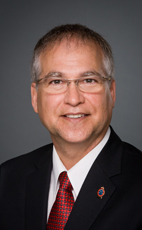Mr. Speaker, I have had experience being on committee with the member opposite. In fact, I recall I spoke with the member, as chair of the ethics committee, on the issue that we would discuss which witnesses would come to committee. He agreed we would do that and then unilaterally disallowed all witnesses by the Conservative Party.
The chair, in another case, walked out and spoke to the media. That is probably allowed, but one would question the ethical nature of such a thing.
There was another case, and when you review Hansard of the committee proceedings, and I encourage you to do that, Mr. Speaker, you will also see that the chair denied speaking to witnesses before they got to committee. Then on questioning the witness, the witness did tell us that was not true, that the witness actually did speak to the chair. The chair did admit later that was the case. He apologized because he forgot it. Apparently he was sitting on a deck somewhere and had received this phone call and forgot. I do not know whether that is privilege or incompetence.
However, on the matter of privilege, if anybody has harmed the member's privilege, it is the member himself. The member has behaved in a way that has caused attention to his conduct, and by the member's own admission, not once, not twice, but three times at the very least. I believe if the member has any issues with privilege, he made them himself.

